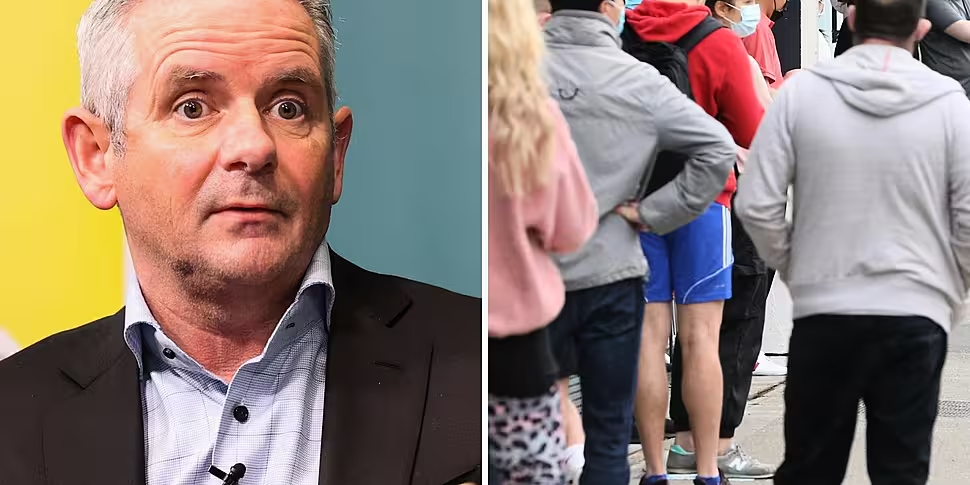People aged in their 60s can attend walk-in booster centres around the country this weekend.
On Newstalk Breakfast this morning, HSE chief Paul Reid said people attending the clinics must ensure they are eligible for a booster.
Currently, boosters are available at the walk-in centre for healthcare workers and people aged 60 to 69.
People who received Pfizer, Moderna or AstraZeneca for their original vaccines must wait until they have been deemed fully vaccinated for at least five months before getting their booster.
Those who received the single-shot Janssen vaccine must wait three months.
“Throughout this weekend and into next week … what we are starting to do now is a combination of specific walk-in availability times in specific centres for those between 60 and 69 and also healthcare workers,” he said.
“So, we will have a number of appointment-driven centres and equally we will have specific times so what I would say to your listeners is to look at HSE.ie, you will see the sites specific to you.
“What I would stress is, it is really important, if you are coming forward for walk-in at a designated site, that you are in the eligible criteria - so you are in the age group - but you are also at least five months after receiving your second dose.”
Booster
He said people who are not eligible will be turned away.
“Look at the HSE.ie site and be sure of your own eligibility coming forward – but ultimately, as of this morning, there are now 630,000 of the boosters complete across those and 76,000 for the immunocompromised.”
He said vaccine supply is not an issue in Ireland.
“We have adequate supply – significant supply – for whatever recommendations come from the National Immunisation Advisory Committee (NIAC),” he said.
Schoolchildren
NPHET last night called for children over the age of nine to be asked to wear masks in school, in shops and on public transport.
The public health officials are also urging parents not to host any indoor gatherings for under 12s for the next two weeks.
The group said children should not attend sleepovers, indoor playdates, pantos, nativity plays and communions for the under twelves throughput the 14 days.
Mr Reid said the measures are not normal tools but noted that “we are not in normal times and I guess every line of defence from a health service perspective we can put up, all the better.”
RSV
He said the number of children presenting at Children’s Hospital emergency departments is up 70% on the same period in 2019, the year before the pandemic began.
“What we are seeing in relation to respiratory viruses is a really prominent issue for us and the impact it is having,” said Mr Reid.
“Not specifically just in relation to COVID but if you take respiratory illnesses … we are assessing the emergency attendances to our children’s hospitals in the period of October to early November and if you compare it to 2019, which would have been the year before the pandemic, there were 11,500 presentations in that five-week period.
“In the equivalent five-week period this year in 2021, there are almost 20,000 presentation so it is a 70% increase. Now certainly yes, the vast majority of all of that is RSV and respiratory illness but it is having an impact overall, so we do need to protect our children as well.
“I fully appreciate it is a difficult one, but it is impacting on the health service as well.”









